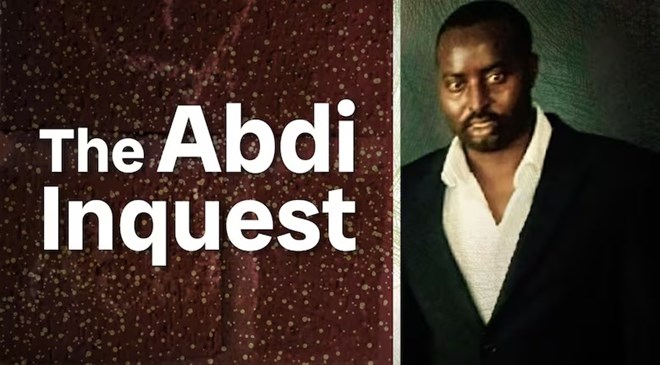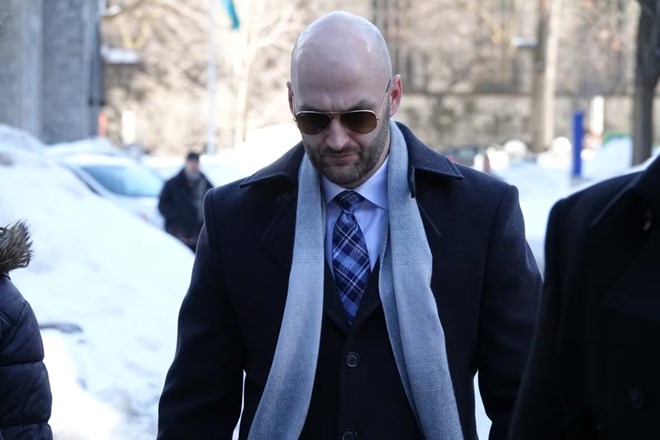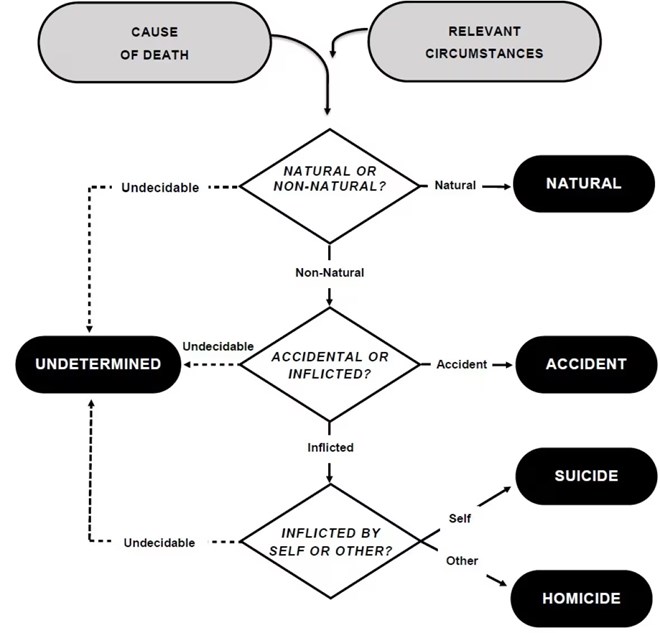
Wednesday December 18, 2024
By Guy Quenneville
Abdi, 38, died in 2016 a day after his violent arrest by Ottawa police

The jury in the coroner's inquest into the death of Abdirahman Abdi has declared the Somali-Canadian man's 2016 death after his violent arrest by Ottawa police a homicide. In the context of a coroner's inquest, homicide does not carry any legal blame. (Jamie Hopkins/CBC)
The jury in the coroner's inquest into the death of Abdirahman Abdi has declared the Somali-Canadian man's 2016 death after his violent arrest by Ottawa police a homicide. In the context of a coroner's inquest, homicide
does not carry any legal blame. (Jamie Hopkins/CBC)Social Sharing
The jury in an Ontario coroner's inquest has declared the death of Abdirahman Abdi, a Black man who died a day after his violent arrest by two Ottawa police officers, a homicide. It's also made a number of recommendations aimed at preventing similar deaths.
In the context of a coroner's inquest, homicide does not carry any legal blame and simply means the jury found Abdi's cause of death was an injury "which was non-accidentally inflicted" by another person.
The jury's calls for change, many of which are directed to the Ottawa Police Service (OPS), focus a lot on how to deal with mental health calls given the circumstances of Abdi's death.
Abdi was a 38-year-old Somali-Canadian man who struggled with his mental health. He was pronounced dead on July 25, 2016, a day after he was punched in the head several times while officers tried to handcuff him following reports he'd groped women in his Ottawa neighbourhood.
Among the jury's recommendations is a call for OPS to form a new advisory board that both integrates the lived experiences of people dealing with mental health issues and develops a "coordinated and cohesive OPS-wide mental health strategy" to improve the outcomes where police interact with those in crisis.
The full list was read out during the virtual inquest's conclusion on Tuesday night. Also included among the more than 50 recommendations was a call for inquests to happen in as "expeditious [a] manner as possible" from the date of death.
The inquest jury's findings come more than eight years since Abdi's death and more than four years after a judge found Const. Daniel Montsion, who dealt the head blows, not guilty of manslaughter.
The inquest was mandatory because Abdi died in police custody. It focused on the intersection of Blackness and mental health, police tactics and training, de-escalation, and the OPS's accountability to the public and its civilian-led oversight board.

Ottawa police Const. Daniel Montsion arrives at the courthouse during his 2019-2020 trial over Abdi's death. Montsion was charged with manslaughter. A judge found him not guilty. (Robyn Miller/CBC)
The jury of five people did not include Abdi's mental illness in the cause of death, a possibility that stirred debate during the inquest.
The cause of death was cited as: "Post cardiac arrest encephalopathy following blunt trauma in a man with exertion, struggle and [underlying] atherosclerotic coronary artery disease."
The inquest heard evidence from two forensic pathologists that a mix of factors contributed to Abdi's heart failure including an underlying heart condition, his physical exertion on the day of his arrest (including stressful encounters with bystanders), his struggle with police, and Montsion's blows to Abdi's head.
What 'homicide' means in a coroner's inquest
Dr. David Eden, the inquest's presiding officer, explained what "homicide" means in the context of a coroner's inquest after final arguments on Monday.
It's not a trial, he emphasized every day of the inquest.
"If this were a criminal or civil trial or a professional disciplinary hearing, some of the evidence you heard might well be relevant to the court's finding as to whether or not a defendant was guilty of an offence, civil negligence or failure to meet professional standards," Eden said.
"You are not judging the conduct of any person or institution or making a finding that someone broke the law or acted in a negligent or unprofessional manner. A finding of homicide by an inquest jury is a finding of fact based on the definitions provided to you."
This is the decision tree jurors were given to help them come to a decision on Abdi's "manner of death":

This is the decision chart given to aid jurors in deciding a person's manner of death. (Office of the Chief Coroner)